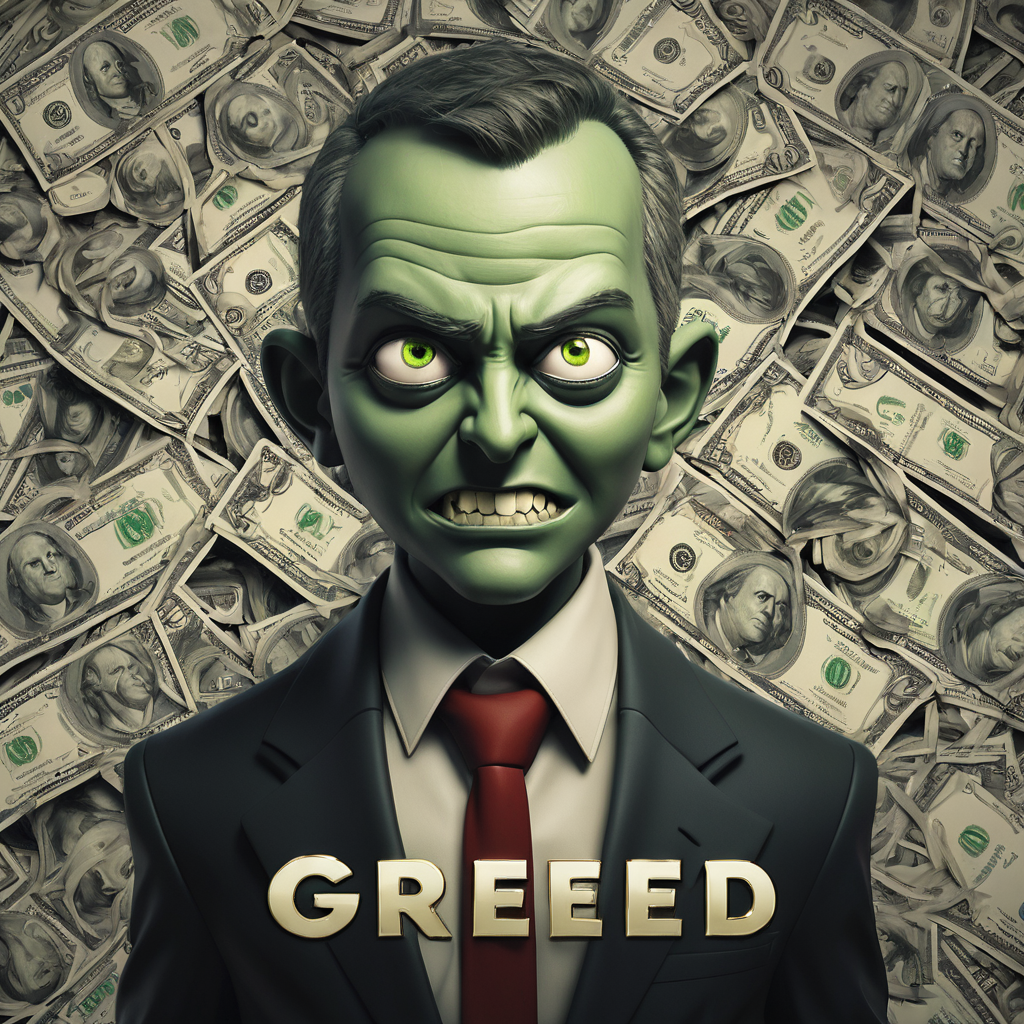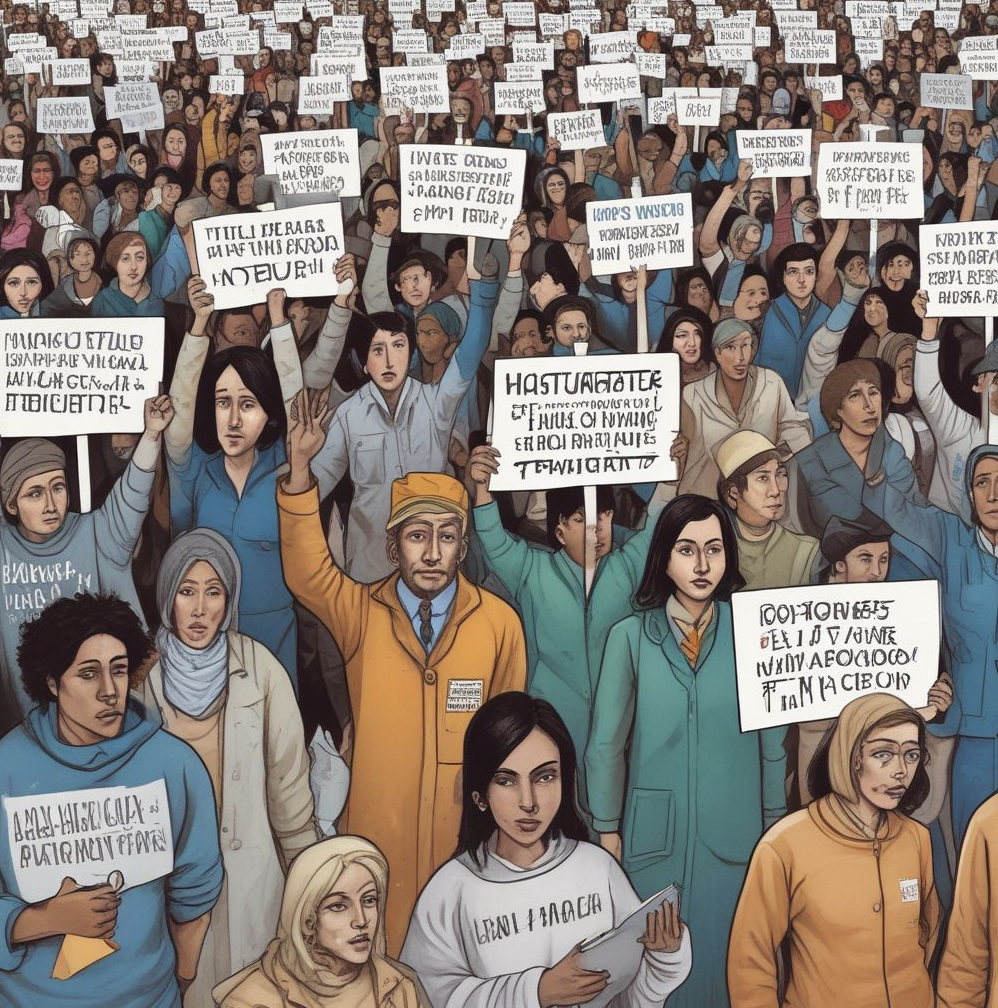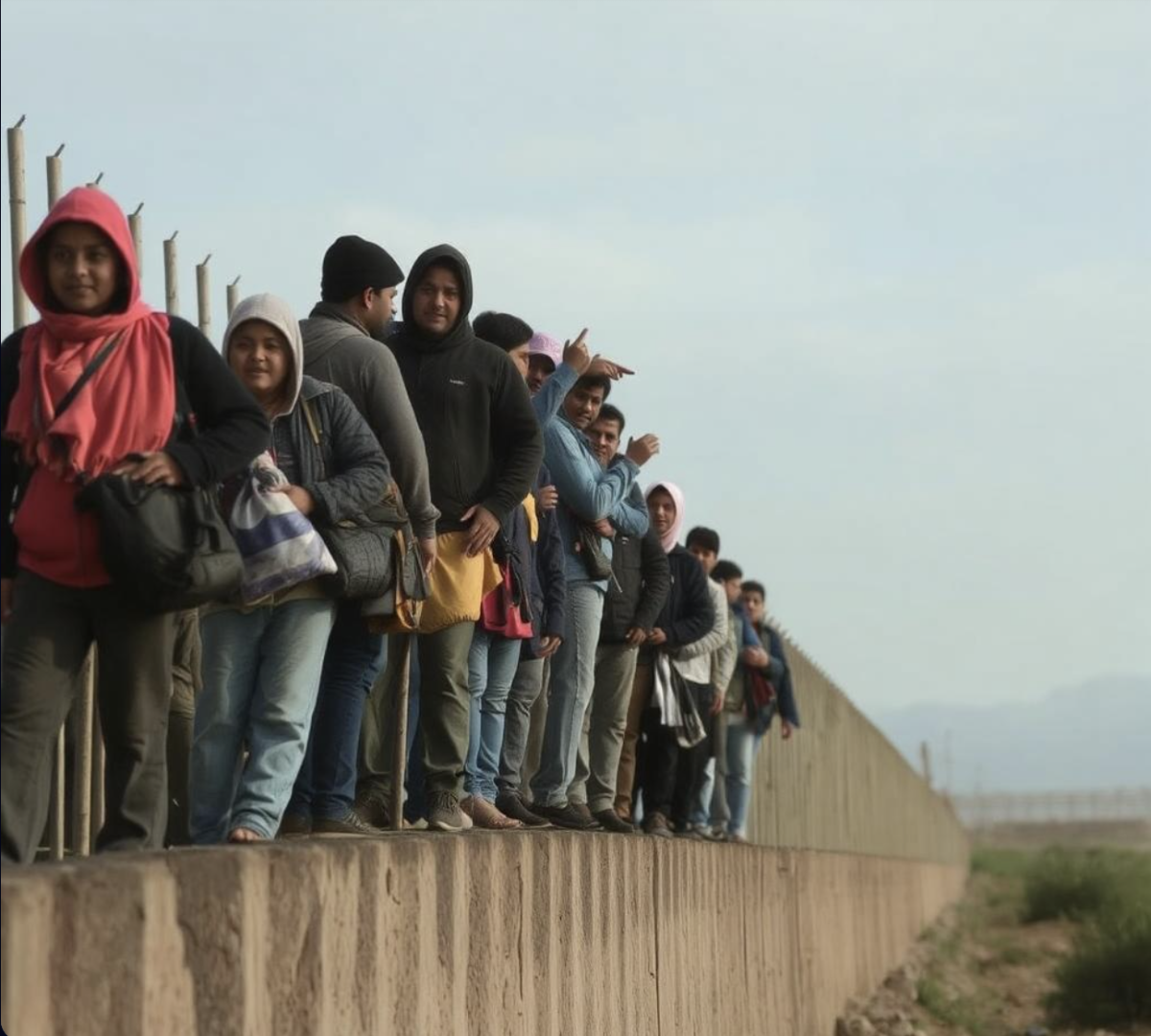Greed is defined as, “A selfish and excessive desire for more of something than is needed.” While it’s true that the wealthiest among us have no significant impact on your financial status, as someone once said, “Poverty exists not because we can’t feed the poor, but because we can’t satisfy the rich.”
Let’s take a look at a few examples:
-
Amazon magnate Jeff Bezos makes $3,715 per second. That’s $205 million per day. In fact, he is so rich that it would take him 356 years to exhaust his wealth at a rate of spending $1 million per day. Why does an individual need more money than he could ever possibly spend in multiple lifetimes?
-
There’s a certain multimillionaire who loves nothing more than to boast about his wealth. Right now, thousands of mostly lower middle-class Americans are picking up his exorbitant $50 million plus bill for legal expenses. Why would a wealthy individual need the average blue-collar American to pay his legal fees?
-
Recently the State of New York provided the Buffalo Bills with $850 million in taxpayer funds to build a new stadium. Three days prior to announcing the subsidy, the State of New York approved an $800 million budget cut to children and family services. Terry Pegula, the owner of the Buffalo Bills, is worth $5.8 billion. Why should New York taxpayers be expected to pick up the tab for his stadium?
-
Starbucks reported $24.56 billion in profits for 2023, which means it could give each of its 400,000 employees an $11,000 raise and would still have $20 billion in profit. Why, then, do the employees have to rely on tips?
-
McDonald’s CEO Chris Kempczinski was paid $17.8 million in 2022. It would take a typical McDonald’s employee more than 1,200 years to make that amount. The fast-food chain increased its menu prices by 10% in 2023. Why, then, did employees see no raise in their wages?
-
Matt Bershadker, CEO of the ASPCA, makes $1M a year. That’s more than the CEOs of Feeding America and the American Red Cross, charities that have a budget 10 times greater. Why, then, did an investigative report by CBS News reveal that only about 40% of donations actually benefit the ASPCA’s mission?
This isn’t to suggest that wealthy individuals aren’t generous, but look at it this way: If a monkey hoarded more bananas than it could ever possibly eat in its lifetime, while most of the other monkeys starved, scientists would study that monkey to figure out what was wrong with it.
Yet when humans do it, we call them successful.
While wealth disparity has been an issue for centuries, in today’s society, one must approach the issue with caution. Some people equate pointing out wealth inequality with being a socialist. Granted, most of these individuals possess only a rudimentary understanding of socialism; nevertheless, they are quick to dismiss the topic of greed as being woke.
In fact, it’s not. Quite frankly, woke is an overused term. Far too many people dismiss something as woke for a convenient excuse to turn a blind eye toward a complex problem. Wealth disparity is one such example.
In his book, Seeds of Contemplation, Thomas Merton writes about the disparity.
“It is easy enough to tell the poor to accept their poverty as God’s will when you, yourself, have warm clothes and plenty of food and medical care and a roof over your head and no worry about the rent. But if you want them to believe you, try to share some of their poverty, and see if you can accept it as God’s will yourself,” he says.
Once upon a time, a single person working 40 hours per week could support the entire family with a house, new car, vacations, and time to enjoy life. Today there isn’t a single state in the U.S. where a 40-hour minimum wage work week is enough to afford a two-bedroom apartment.
Though I don’t have any answers to remedy the problem, I’ll conclude with a story:
While en route from his mansion to his office and back again, a millionaire would often cross paths with a poor, physically challenged young man begging at an intersection. One evening, after enjoying a decadent meal with his beautiful wife and healthy children, the millionaire prayed to God in exasperation: “Lord, why don’t you do something for that poor man on the street I see every day?” And God answered simply: “I did. I created you.”
The moral of the story: When life blesses you financially, don’t raise your standard of living. Raise your standard of giving.
—
J. Basil Dannebohm is a freelance writer and publisher of The Dannebohm Dispatch. He resides in the Commonwealth of Virginia.







